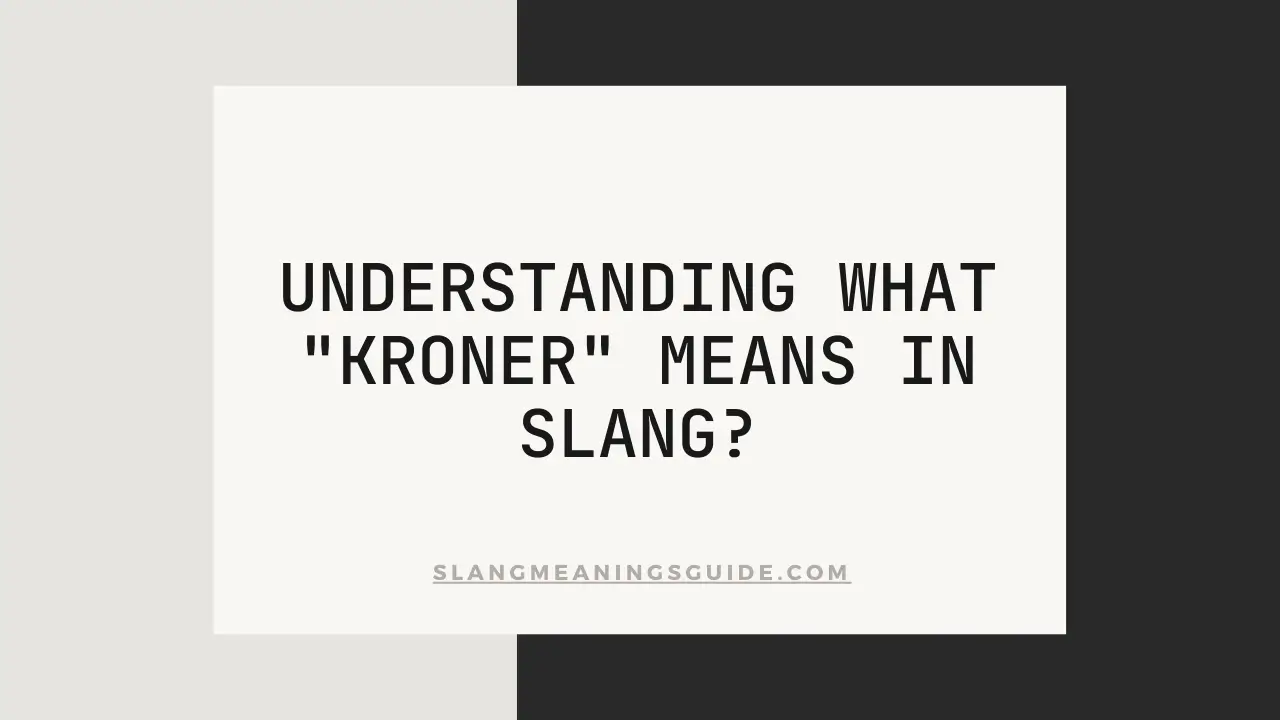| Please Wait Loading ..... |
 |

Ever thought about what does kroner mean in slang?
Although, it is usually referred to as the currency of Denmark and Norway. However, in some informal settings “kroner” may have multiple meanings.
So, let’s find out the informal meaning of the slang Kroner, its origins, and how people use it in daily conversation.
In slang, “kroner” means money or cash, similar to “dollar” or “pound.” It’s a great way to talk about money, often in great detail.
Example 1: “I have no kroner left after that shopping trip!”
Example 2: “Can you give me some kroner for the weekend?”
The term can also suggest wealth or financial ability when used to talk about someone’s money situation in a playful manner.
The slang usage of “kroner” likely emerged in regions influenced by Scandinavian culture or through media references. Over time, it gained traction as a fun and quirky term for money.
| Term | Standard meaning | Slang meaning |
| Kroner (Currency) | Currency in Denmark/Norway | Informal term for money |
| Bucks | American dollars | Slang for cash |
| Quid | British pounds | Casual reference to money |
To incorporate “kroner” into your vocabulary, consider these examples:
Casual Conversations:
Social Media Posts:
The word “kroner” is unique due to its Scandinavian background, giving a global flair to everyday chats. Using it makes your slang more interesting and diverse.
Humor is key when using slang like “kroner.” Combine it with light-hearted remarks or funny scenarios to make the term more engaging. For example:
While “kroner” is a fun alternative, there are plenty of slang terms for money you might encounter, such as:
These terms are used interchangeably to keep conversations lively and engaging.
Money slang gives character and fun to simple topics like spending or saving. It is a creative method to make daily talks more amusing.
Here’s why you should use “kroner”:
Slang terms make your conversations more relatable and engaging
For more playful or region-specific variations, you can try:
When in doubt, pair “kroner” with other casual slang to create relatable and fun sentences. For example, “I need some kroner for my weekend plans—time to hustle!
Slang adds flavor to language and fosters a sense of belonging in groups. Using terms like “kroner” can make conversations feel more personal and relatable. It’s a way to express yourself creatively while connecting with others through shared cultural references.
Regional slang like “kroner” adds a cultural twist to daily conversations. It bridges cultures by introducing unfamiliar yet relatable expressions into casual language.
For example:
In short, What Does “Kroner” Mean in Slang? It shows that ‘kroner’ is a casual word used for money. Whether you’re joking about having no cash or celebrating a windfall, using ‘kroner’ can add a humorous touch. Next time you’re short on cash, try saying, ‘I have little kroner,’ and see if it makes people smile!
Comments